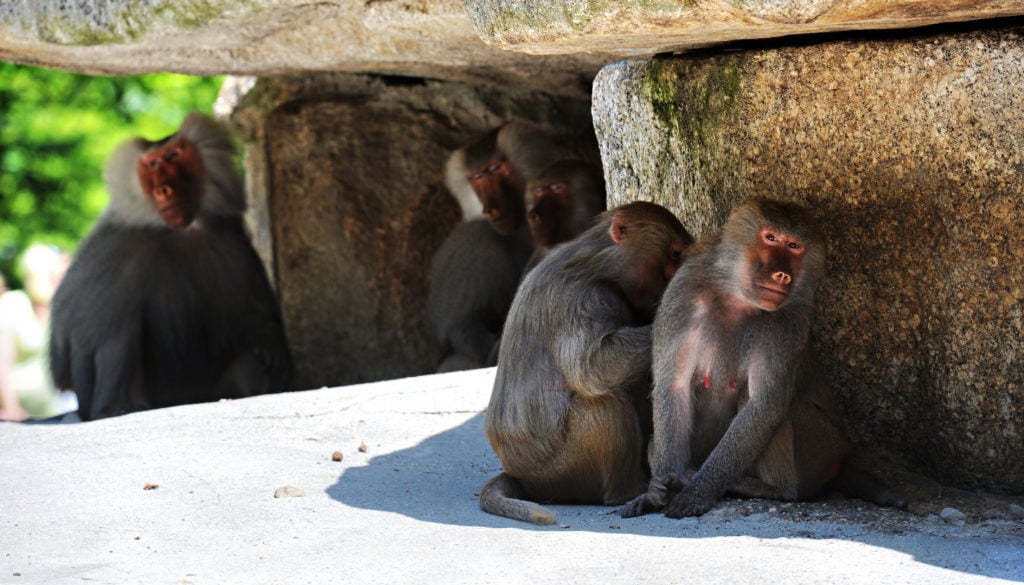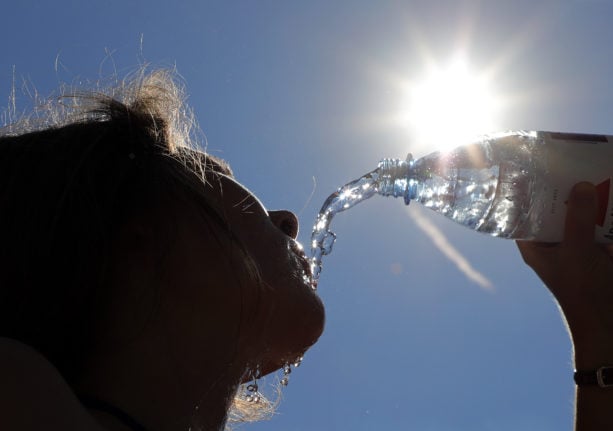1. Mir ist heiß
Firstly, it’s worth pointing out how to correctly express the fact that you’re hot in German.
In German, you say mir ist heiß using the dative form of the personal pronoun ich.
Be careful not to directly translate the English sentence “I am hot” into ich bin heiß as most Germans will understand this to mean that you are hot in a more sensual sense of the word.
Examples:
2. Was für eine Affenhitze!

The word Affenhitze is a colloquial term used for very high temperatures and literally means “monkey heat”. It’s widely believed that the term first appeared at the end of the 18th century in Berlin.
At that time, the monkey house in the Berlin Zoological Garden was known for being extremely hot, so people started to speak about “heat like in the monkey house”. Over time, the phrase became shortened into the phrase widely used today.
Example:
Morgen herrscht wieder eine Affenhitze.
Tomorrow will be another scorcher.
3. Es ist brütend heiß!

The adjective brütend comes from the verb brüten meaning to breed or to incubate. It is likely, therefore, that it made its way into common parlance about the weather, from the fact that raising younglings involves keeping them nice and warm.
Hier drin ist brütend heiß!
It’s sweltering hot in here!
4. Ich schmore in diese Hitze
More commonly used in the cooking lexicon, the verb schmoren meaning ‘to stew’, or ‘to sizzle’ is often used to express the feeling of being exposed to high temperatures. A comparable English phrase would be, “I am sizzling in this heat”.
5. die Sonne knallt!

One popular expression to do with the heat focuses on the source of the problem itself. The verb knallen means “to bang” or “to slam”.
Example:
Die Sonne knallt auch wenn es bewölkt ist!
The sun is blazing even when it’s cloudy!



 Please whitelist us to continue reading.
Please whitelist us to continue reading.
Member comments